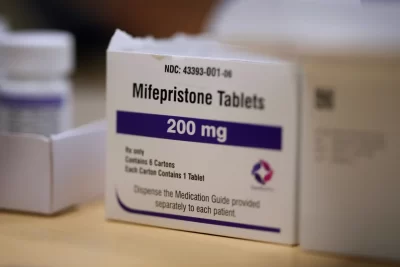
FORT PIERCE, Fla. — A federal judge on Thursday rejected one bid by Donald Trump to throw out out his classified documents criminal case, and appeared skeptical during hours of arguments of a separate effort to scuttle the prosecution ahead of trial.
U.S. District Judge Aileen Cannon issued a two-page order saying that though the Trump team had raised “various arguments warranting serious consideration,” a dismissal of charges was not merited. The case involves boxes of records, some highly classified, that Trump took to his Mar-a-Lago estate when he left the White House.
Cannon, who was appointed to the bench by the former president, had made clear during more than three-and-a-half hours of arguments that she was reluctant to dismiss one of the four criminal cases against the 2024 presumptive Republican presidential nominee. She said at one point that a dismissal of the indictment would be “difficult to see” and that it would be “quite an extraordinary” step to strike down an Espionage Act statute that underpins the bulk of the felony counts against Trump but that his lawyers contend is unconstitutionally vague.
The ruling from Cannon is a modest win for special counsel Jack Smith’s team, which in addition to the classified documents case is pursuing a separate prosecution of Trump on charges that he plotted to overturn the results of the 2020 presidential election.
Donald Trump is facing four criminal indictments, and a civil lawsuit. You can track all of the cases here.
But it left unanswered questions over when the case might proceed to trial and only covered one of the two motions argued in court on Thursday. A separate motion about whether Trump was permitted under the Presidential Records Act to retain the documents after he left the White House remains pending, but the judge also seemed disinclined to throw out the case on those grounds.
“It’s difficult to see how this gets you to the dismissal of an indictment,” she told a Trump lawyer.
Trump attended Thursday’s arguments, listening intently with his hands sometimes clasped in front of him on the defense table as his attorneys pressed Cannon to throw out the case.
The hearing was the second this month in the case in Florida, which has unfolded slowly in the courts since prosecutors first brought charges last June. Cannon heard arguments on March 1 on when to schedule a new trial date — it was initially set for May 20 — but has yet to announce one and gave no indication Thursday on when she might do so. Prosecutors have pressed the judge to set a date for this summer. Trump’s lawyers are hoping to put it off until after the election.
After the hearing, Trump on his Truth Social platform took note of the “big crowds” outside the courthouse, which included supporters with flags and signs who honked their car horns in solidarity with the ex-president. He again said the prosecution is a “witch hunt” inspired by President Joe Biden.
Some of Thursday’s arguments centered on the 1978 statute known as the Presidential Records Act. The law requires presidential documents to be turned over to the National Archives and Records Administration, though former presidents may retain notes and papers created for purely personal reasons.
His lawyers say the act entitled him to designate as personal property the records he took with him to Mar-a-Lago in Florida and that he was free to do with the documents as he pleased.
“He had original classification authority,” said defense lawyer Todd Blanche. “He had the authority to do whatever he thought was appropriate with his records.”







